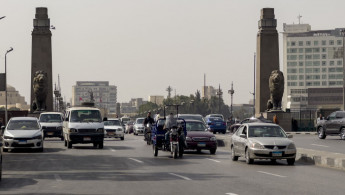'Foul play' looms over Egypt's Sukari gold mine deal
As news broke on a major deal that involves South African AngloGold Ashanti taking over Egypt's rival Centamin, the operator of one of the world's largest gold mines, Sukani, Egyptians have suggested alleged "foul play".
The deal, officially announced on Tuesday, will allow the South African company to acquire 83.6-stake in Centamin, which initially owns 50 per cent of the economic interest in Sukari, for $2.5 billion. The remaining 50 per cent is owned by the Egyptian government.
Johannesburg-based AngloGold Ashanti is the world's sixth-largest gold miner.
No further details on the agreement were immediately available.
Meanwhile, the reported business arrangement was met with outcry on social media, as activists and government critics questioned why the government would allow the sale of a source of national income and a resource that generate substantial profit three times more than the deal's volume.
Social media users shared links to news reports and screenshots dating back to March last year of former Minister of Petroleum and Mineral Resources, Tarek El-Mulla, as saying in March 2023 that Sukari had derived until a month earlier about $7.5 billion of profit since it first operated during the 2000s.
Unconfirmed reports indicated that Sukari and other fields of mineral resources in Egypt are reportedly controlled by the army. The New Arab could not independently verify the claims.
Located in the eastern desert of Egypt, almost 23 kilometres southwest of Marsa Alam, a coastal town near the Red Sea, Sukari is one of the world's largest gold deposits.
Neither the petroleum ministry nor Centamin could be reached for comment about the corruption allegations at the time of publication.
Egypt's gold production amounts to nearly 15.8 tons per year; most of it is derived from Sukari in the Eastern Desert, according to a report by the World Gold Council.
In 2023, Centamin raised its estimates of gold reserves in Sukari by 10 percent from 5.3 to 5.8 million ounces.
Amid an unforgiving economic crisis, external debts, budget deficit, and foreign currency shortage, the Egyptian government has resorted to the sale of state assets, mostly to wealthy Gulf nations, especially to the United Arab Emirates.
Experts, however, argue that the country's predicament resulted from the government's mismanagement and investment in white elephant projects including the new capital, which cost Egypt about $60 billion.
In April last year, Egyptian President Abdel Fattah al-Sisi was slammed for building an extravagant record-breaking mosque in the New Administrative Capital, a 19,000 square-metre building that cost 800 million Egyptian pounds, equipped to host over 100 worshippers at a time.




 Follow the Middle East's top stories in English at The New Arab on Google News
Follow the Middle East's top stories in English at The New Arab on Google News

![A group of Palestinians, foreign and Israeli activists gather to participated in an olive picking event on the land in the town of Battir, which is under threat of confiscation by Israel in Bethlehem, occupied West Bank on 8 November 2024. [Getty]](/sites/default/files/styles/image_330x185/public/2182930803.jpeg?h=199d8c1f&itok=__0LgGsa)
